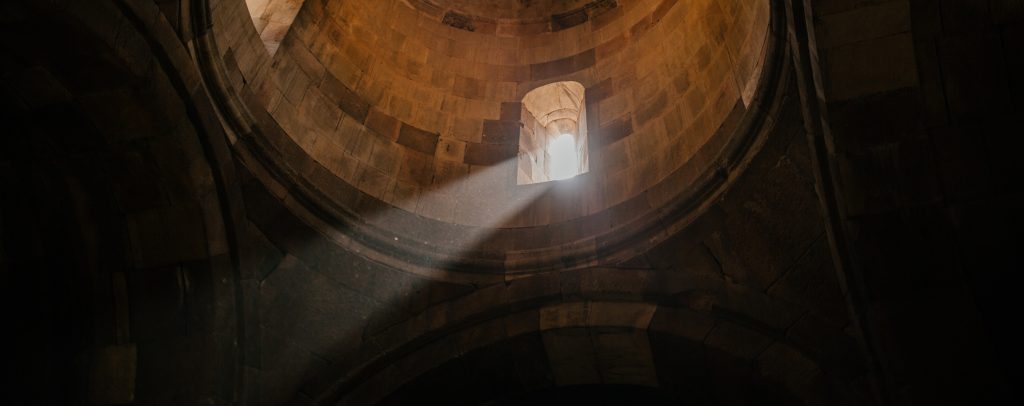“Emptying precedes filling.” Eugene Peterson
My favorite living novelist is the Canadian Roman Catholic, Michael D. O’Brien. I’ve read most of his thirteen novels, and his Father Elijah remains one of the most formative works of fiction in my life. For all of his skill as a writer, however, his first and primary vocation remains as a painter, specifically an iconographer. In both writing and painting he displays extraordinary gifts, offered with great discipline and consistent fidelity over many decades, most deeply as an act of worship to God which then has become a deep blessing for so many.
And it’s never been easy. In fact, quite the contrary.
I learned this having recently read his new biography, On the Edge of Infinity by Clemens Cavallan, must reading for any artist whose life is oriented around Christ. In it we find the distillation of O’Brien’s creative process, which sounds utterly exhausting and painful.
“This is typically how Michael’s creative process works, at least at critical junctures of his artistic development (both in painting and writing). First, there is an absolute emptiness in which human strength and will power are completely inadequate; he prays and waits, and when the impossibility overwhelms him, a revelation of the image suddenly appears. When it comes to novel-writing, such sudden materializations in the imagination are also common.” (173, emphases mine)
“Emptying precedes filling,” observes Eugene Peterson.
His is a distilled way of echoing St. Paul in 2 Corinthians 12.9:
“But God said to me, ‘My grace is sufficient for you, for my power is made perfect in weakness.’ Therefore I will boast all the more gladly of my weaknesses, so that the power of Christ may rest upon me. For the sake of Christ, then, I am content with weaknesses, insults, hardships, persecutions, and calamities. For when I am weak, then I am strong.”

The bad news about weakness, and feeling weak, is that that it seems to be a prerequisite for God’s power coming to us and flowing through us. In order for God’s power to be made perfect in us and Christ’s strength to rest upon us, we must first be weak.
But none of us likes to feel weak, helpless, or in need. It’s one thing to speak of it romantically, it’s a whole other thing to be actually going through it.
For most of us we unconsciously live in a state of self-reliance, and habitually take on that which we can accomplish in our own strength. God is content to let us do that, but we miss (as do those around us) the miracles that regularly happen when it is God’s power working through us beyond our own gifts and capacities.
To be strong in the Lord we must know weakness in ourselves, viscerally. This is not easy until we learn that this profound sense of incapability precedes more power than we knew was possible. When we’ve learned this, these seasons of sharp awareness of our own inabilities can become even sweet, for they drive us to reliance on God. And God comes through in response to our prayers, crying out for help, and even despair.
Indeed this is something to be learned, as Paul writes, “I have learned the secret of facing plenty and hunger, abundance and need. I can do all things through him who strengthens me.” (Philippians 4.12-13)
So the great news about weakness is that is preparation for God to really show up, to strengthen us with his power, and do more through us than we could by ourselves. I’ve said it many times, I’ll say it again–God can do more through us than we can ever do for him–but for this to happen we must give up on ourselves and our abilities and intellect, and pray, and wait, and watch God do more.
So, what are you facing that confronts you with your utter inability for the task? Let it plunge you into the depths of despair and helplessness, and in that lowly, needy place cry out to God for help. “Make haste, O God, to deliver me! O Lord, make haste to help me!” (Psalm 70.1) Use words, get specific in your requests, acknowledge boldly and genuinely your utter helplessness.
And when God does indeed deliver us, and when God does indeed help us, and when God does indeed do more for us and through us than we can “ask or imagine, according to the power at work in us” (Ephesians 3.20), we’ll even rejoice in that thing that brought us to our knees, and take another step learning to savor the sweetness of weakness.
We will even thank God for these challenges that have driven us to God, as those words from the Book of Common Prayer remind us, “We thank you for setting us at tasks which demand our best efforts, and for leading us to accomplishments which satisfy and delight us. We thank you also for those disappointments and failures that lead us to acknowledge our dependence on you alone.” Amen.

